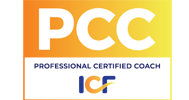
Nadia Prescott
Why do you need to do develop a fundraising plan? So your fundraising activities are proactive, organized, visible and most importantly – successful!
Developing a well- crafted fundraising plan provides you the opportunity to
articulate your financial vision for the organization. It should clearly identify tangible and realistic goals that are achievable using different income sources.
Depending on the size of your organization, fundraising activities can include a
range of approaches including grants, gala events, gifts from both board member and other individuals, and major donor sponsorships. Your fundraising plan should be a living document, like a dashboard, that provides your board with an ongoing snapshot of how well you are doing in meeting your fundraising goals and identify when you may need to take corrective action. One of the most important functions of a well-developed fundraising plan is to keep your board engaged and involved with your fundraising efforts. They need to know what’s happening, and what you expect of them to ensure success. If they don’t know, they can’t help!
If you have traditionally relied only on grants for funding, you might want to
consider adding individual gift-giving as part of your fundraising strategy. Grants can take three to four months to be funded – individuals can write a check immediately. Remember that 85% of charitable dollars given each year comes from individual donors (Giving USA). And by the way, about 60% of those individual gifts come from people over 60. Money from individual donors gives you access to unrestricted cash – which is the best kind! You can use this demographic information about potential donors to help you develop your own plan. Ask yourself the following questions: Am I planning to raise money from
individual donors, and if so, how much and from whom? What activities do I have scheduled that will appeal to my target audience (an annual appeal, a spring appeal, house parties, a big event), and should I plan events for a number of different audiences to increase my chances of success? Even if you haven’t previously developed a formal fundraising plan that includes soliciting from individual donors, that doesn’t mean you shouldn’t set a goal to start in 2017.
And finally, when constructing your organization’s fundraising plan, include a
number of different communication strategies, such as hard copy mailings, emails and social media. You want to make sure you have covered all the bases when appealing to a wide range of donor audiences.
To learn more about how to set up an effective fundraising plan, visit
www.emergingexecutive.com/resources and download the webinar on
Fundraising Planning. It’s one in a series of useful and simple to understand
webinars designed to give you an overview of how to maximize your fundraising
strategies.



